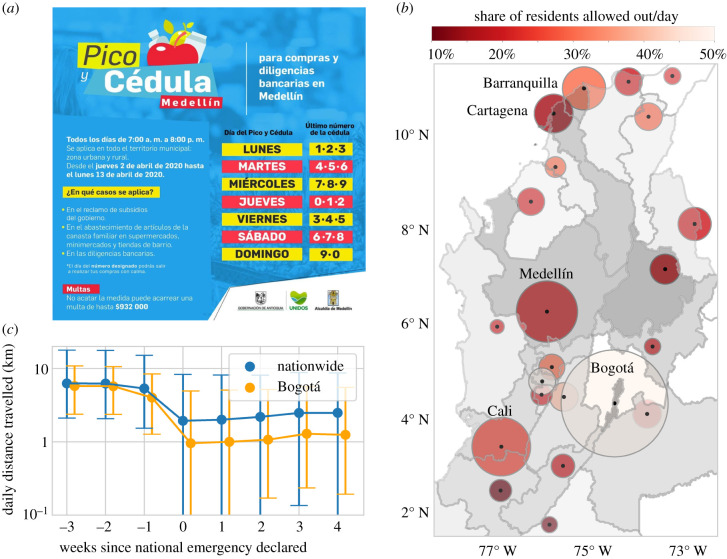Figure 1.
Colombian municipalities administered locally varying policies in which residents were allowed to go out for essential purposes on days corresponding to their national ID/gender. (a) During the first half of the study period, Medellín allowed out three ID numbers daily (30% of residents), though it later tightened the policy to only allow out two ID numbers daily (20% of residents). Image reproduced with permission from the Alacaldía de Medellín. (b) The capital municipalities (points, size proportional to population) of the most populous departments in Colombia, coloured by the average share of residents allowed out per weekday from 13 to 27 April. Departments are shaded by GDP per capita. (c) Users nationwide reduced their mobility greatly from 19 March (end of week −1), when the government first announced national lockdown-related policies. From 19 March to 9 April (weeks 0–2), residents nationwide were instructed to stay at home unless absolutely necessary, but localized policies took effect from 6 April (week 2) in all municipalities except Bogotá, which implemented the pico y género policy on 13 April (week 3).

